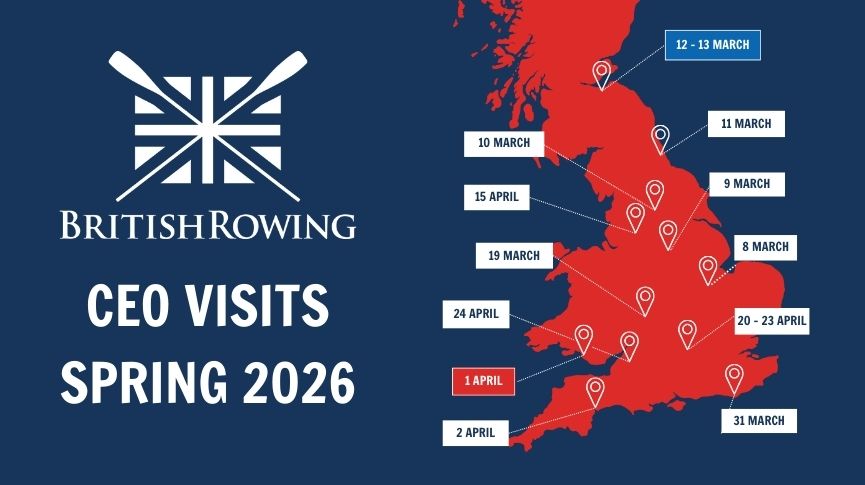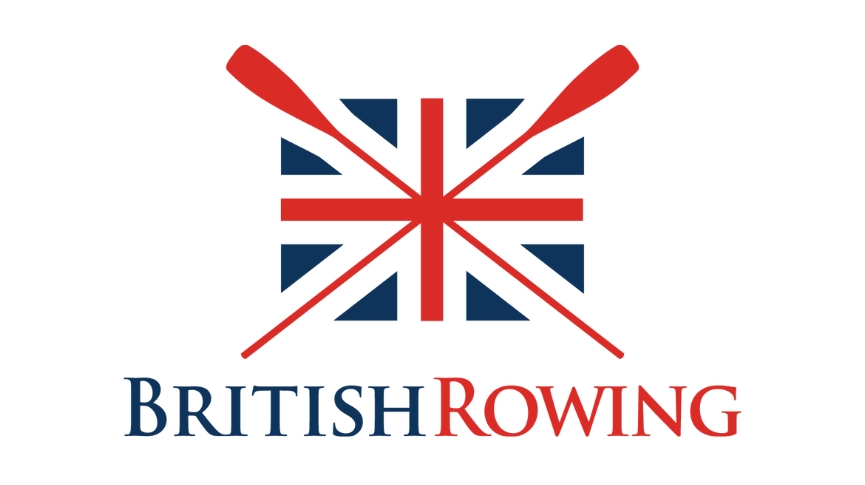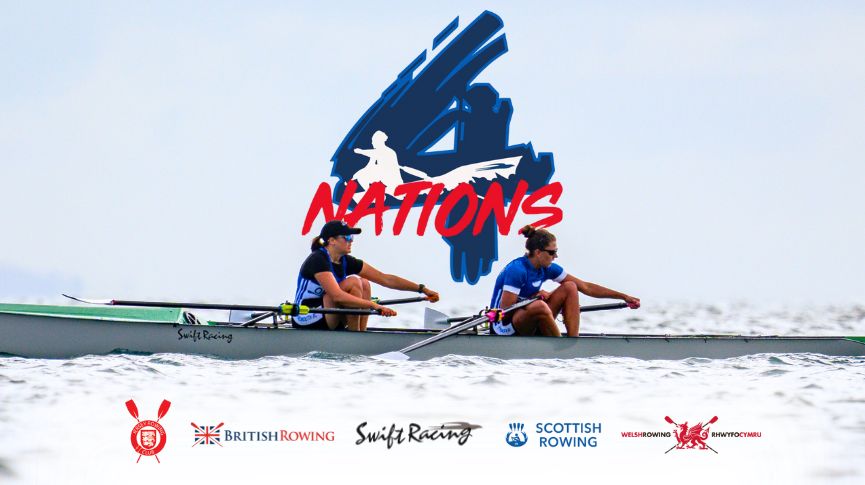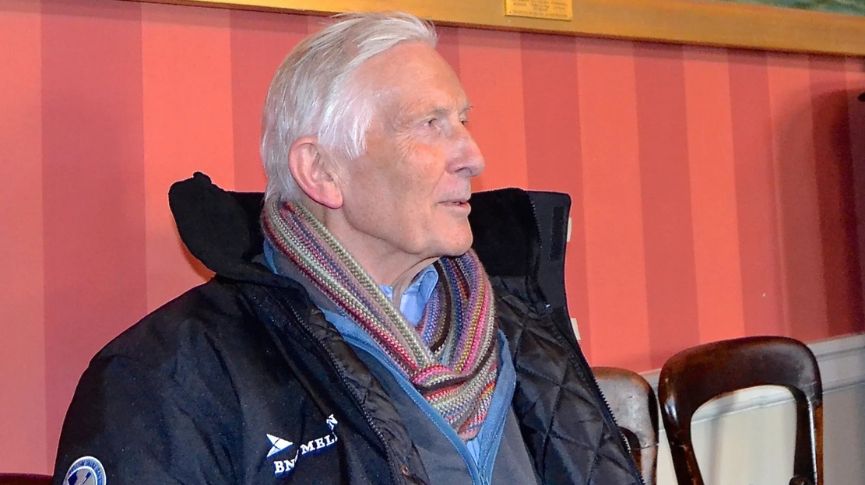Reading University BC: Building generational success
After a season to remember, Fergus Mainland heard from Reading University BC’s Will Rand and Chris Bartley to get the lowdown as to what’s led to growth and dominance on the domestic and international sculling scene

10 years ago, Reading University BC made the seismic decision to go all in and put their chips solely on sculling. The decade they have ensued is one of transformational growth, and the 2024-25 season encompasses that development like no other period. There have always been BUCS medals, international vests and excitement brewing on their stretch of the Thames. However, what we witnessed over the past 12 months was a coming-of-age season. Under the tutelage of Will Rand, Chris Bartley, and Simon Williamson, the club have taken over domestic rowing and laid the foundations for generational success to be crafted in their boathouse.
The spoils of war from last year’s campaign only tell an excerpt of the masterpiece that was created. A Men’s Victor Ludorum at BUCS Regatta, two Championship wins at Henley Women’s Regatta, were followed by two Saturday berths at Henley Royal Regatta. These are results of a finely tuned programme that has the full backing of the wider university and buy-in from all the students that walk through the doors in Freshers week.
“I’d had to write a business case with Sam Townsend and Sean Casey, who were coaching at the time,” outlined Director of Rowing Will Rand.
“I dug it out for Chris and Simon recently. It was funny reading through it because it’s what we’ve aimed for, there’s not many business cases that I think happen like that. You say what you want, and it doesn’t always happen, it’s really nice, and it’s just fun to do.
“I’m lucky as the university doesn’t put pressure on me, so I don’t have to pass that on to Chris and Simon with any sort of expected results. We’re all ambitious enough to want to get results, but not at any cost. Just as a by-product of working hard and enjoying it.”
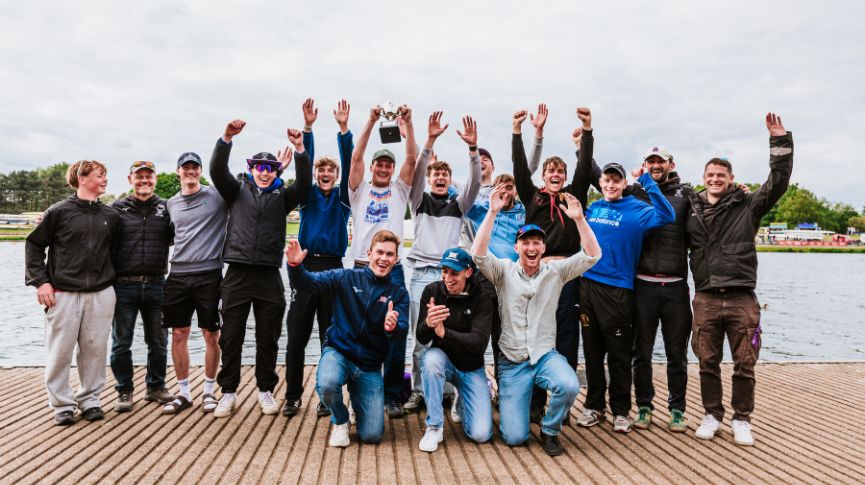 Credit: BUCS Flynn Duggan
Credit: BUCS Flynn Duggan
The club is unquestionably enjoying the start to the new season. Finnola Stratton and Matt Long have both returned from international duties over the summer and dominated November Trials to win the Single Scull events. Across the wider squad, 13 quads took to the waters for Upper Thames Autumn Head and 13 more will be racing Fours Head this weekend.
While 52 rowers will make the trip to the Tideway on Saturday, Chris reckons there will be another five or six quads of people who will be back in Reading this weekend. It’s a great problem that the club have run into, one that the two-time Olympian loves to figure out.
“That also completely changes the dynamic of the whole group, and I think that’s where Will’s really, really good at ensuring the culture remains as it has done and as it’s developing despite the sort of challenge of the number of people. The bigger group obviously feeds into quite a lot more activity, energy and excitement and as long as you try and support all of those people, I don’t see why I can’t continue to build.
“I think that’s where I probably see the biggest difference, just managing those numbers and trying to find ways to give them the support that they need, as we have done previously with a much smaller group. And I feel like we’re doing quite well and the atmosphere is still good, still fun, and still a family.
“The students knew we would probably have more numbers this year. We were going to have to juggle things, and not everybody’s going to get as much water time at certain stages. That’s where Upper Thames was good, just because it’s fun to be racing at that level. People have accepted, leading up to the Fours Head, that maybe there are more people doing a bit more land training at this stage. But we’re so lucky with the water at the moment because other years, we haven’t been able to get on. We’re very grateful that we’re still getting some water time.”
Rowing is full of cliches that are thrown around to describe environments or training, one of which has already been referenced. More often than not, clubs will describe themselves as families, but in Chris’ case and Reading University BC’s case, it seems an apt description.
There’s an infectious energy around coaches and athletes at the club. It’s an energy that stems from Rand’s principle of investing in the culture.
“I’ve been told not to give away too many magic beans, that’s what the girls call it,” said Chris with a laugh. “Will has taught me a lot about how different everybody is and how messages may be received differently; they might need to be delivered differently.”
“I’ve got an autistic son and I’ve learnt masses from him which I’m now passing on to what we do here,” said Will.
“I think some of the elevated development over the last five years is because I’ve had to learn a lot from helping my son. I can see how that has transferred into the way we’re helping individuals with what we do.
“I don’t see that the coaches hold power, and we shouldn’t, but we should work collaboratively with the students to get the best results from them. If someone’s not performing, it’s not because they’re not wanting to try and perform. It’s because we haven’t stumbled across whatever it is to help them perform. We can take credit for the great performances, but we’ve also got to do the same with the bad performances as we produced them as well.
“I think we’re very much into the saying, ‘let the results take care of themselves.’ We try not to put pressure on them with good results by almost achieving the good results. You can be a good person and have bad results or a bad person and have good results. The two aren’t linked, but we’re trying to make them into good people, and we might as well enjoy their good results if they’re coming. That is a big part of it.”

Beyond the boat club, the University of Reading will celebrate its centenary in March 2026. In 1926, the university was awarded a Royal Charter and became a university. The occasion gives them the chance to showcase the university community, and some of its greatest ambassadors will certainly be the recently rebranded Clams of Reading University BC.
Much like the university, the club has generated a nostalgic highlight reel over the years, and for Will, there are plenty to choose from. Having joined the coaching team more than 20 years ago, he’s helped shaped the lives of hundreds of athletes.
“The support of the students and the enjoyment the students have at BUCS is immense. We have a little tent up there and they’re all hanging out, chilling out, and it’s just a crazy weekend for running around, doing stuff, but it’s big. I think seeing Finn and Matt last year winning the singles, the quads and the doubles, is pretty special.
“My older son had come up to help, and he was helping Finn and Matt with their singles. He doesn’t really know what’s going on, but he’s just having a nice chat with them. I think those have been great moments. I’ve also loved the journeys for all those involved. All of the performances over the years have made the club what it is, we found something that just makes it fun.”
For now, the club is busy concocting its masterplan for Fours Head this weekend. Chris has been kept busy by an influx of freshers and devising a variety of training plans and sessions to ensure every athlete, regardless of their background, can find their footing in the club.
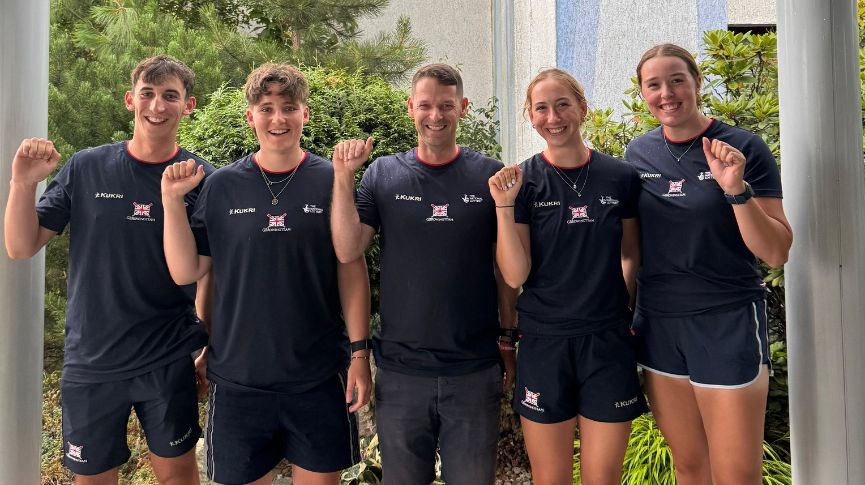
“I have got quite a keen eye for detail, and I like to plan, so hopefully I don’t leave many stones unturned. I know that it can’t be a broad brush approach for everybody, so there are lots and lots of different ways that we try and make people feel comfortable being themselves.
“There’s obviously the programming individuality, so that certain people will have certain different sessions and around that. But the way we structure erg testing, there might be different ways that we provide for some people to be able to perform at their best compared to what would be seen as a normal way of doing things, like a standard, sort of way that you might have seen in Boston at that trial, for example.
“I definitely spend a lot of my time doing, and the way that I manage it is, we start the season with four separate training programmes that have got a kind of spine of sessions that are familiar throughout, so that the squads feel like they are all doing kind of the same thing and every day they might have something that’s pretty much identical. But it’ll be kind of phased in with volume or intensity or expectation or whatever, the kind of how much we might push people to do all of it.
“The bottom line is, it’s a lot of work for me, and it’s a lot of monitoring that each programme is having the desired response and is well received and enjoyed by whichever group. Number two is giving them the flexibility to kind of choose between them. It’s them who leads, wanting to do more or wanting to target trials. It’s never us going, ‘You have to do this if you want to perform’.
“Our coaching interactions will be different, and how we challenge people or encourage people will be quite different depending on ability level, ambition or training. It’s not super straightforward. I think the idea of going into a programme where I could write one training programme and that would be it, I don’t know what I’d do with the rest of my time, so I really enjoy that challenge and that problem solving.”


